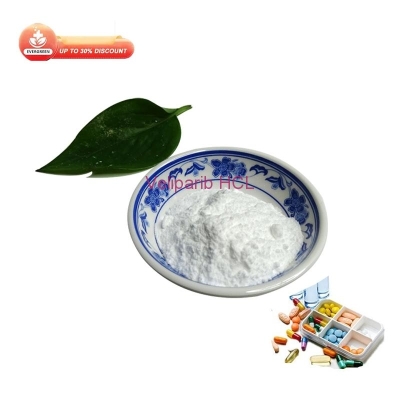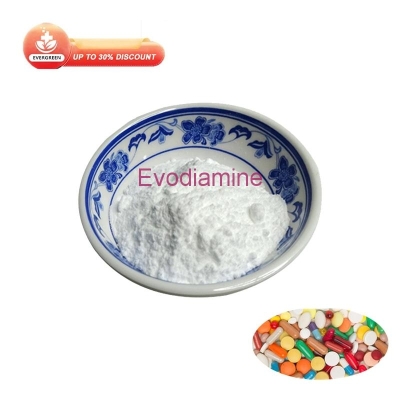-
Categories
-
Pharmaceutical Intermediates
-
Active Pharmaceutical Ingredients
-
Food Additives
- Industrial Coatings
- Agrochemicals
- Dyes and Pigments
- Surfactant
- Flavors and Fragrances
- Chemical Reagents
- Catalyst and Auxiliary
- Natural Products
- Inorganic Chemistry
-
Organic Chemistry
-
Biochemical Engineering
- Analytical Chemistry
- Cosmetic Ingredient
-
Pharmaceutical Intermediates
Promotion
ECHEMI Mall
Wholesale
Weekly Price
Exhibition
News
-
Trade Service
Cancer has always been one of the biggest nightmares in the history of human diseases.
It is also called the "king of all diseases" because of its complexity and incurable nature
.
Even in today's highly developed medical technology, when it comes to cancer, everyone naturally associates it with death, especially advanced cancer
In recent years, the emergence of cancer immunotherapy has completely changed the current cancer treatment pattern.
However, immune checkpoint blocking therapy is not effective for most cancers, and CAR-T cell therapy has still failed to overcome solid tumors
.
Therefore, for patients with solid tumors, surgery is still the preferred treatment option, but many patients still have tumor recurrence and metastasis after surgery
Immune CAR-T
The recurrence and metastasis of tumors after surgery are closely related to the body's anti- tumor immune status.
Therefore, cancer vaccines have become a promising treatment for patients with tumor resection.
However, because tumor tissues often do not have strong immunogenicity, this Limit the effectiveness of cancer vaccines
.
Using bacterial components as adjuvants to enhance immunogenicity is a promising strategy to overcome this limitation
Tumor immunity
On July 7, 2021, researcher Guangjun Nie and Researcher Wu Yan of the National Nanoscience Center and the team of academician Zhao Yuliang published a research paper titled: Bacterial cytoplasmic membranes synergistically enhance the antitumor activity of autologous cancer vaccines in Science Translational Medicine.
, Has made important progress in the design of personalized nano-tumor vaccines
.
The research team pioneered the integration of E.
coli cell plasma membrane and autologous tumor cell membrane into nanoparticles, and developed a new personalized cancer vaccine.
Experimental results showed that these hybrid membrane nanoparticles induced a strong tumor after surgical removal of the tumor.
The specific immune response improves the survival rate of mice and can protect mice from re-attack by tumors for a long time
.
Moreover, no side effects such as excessive stimulation of the immune system due to bacterial cell wall contamination have been found
.
This study shows that personalized autologous tumor antigen vaccines based on bacterial cell plasma membranes that effectively activate the innate immune system have great potential in the personalized treatment of patients after cancer surgery
Cancer vaccines use tumor antigens to induce the body's own immune response to specifically kill tumor cells
.
Because the body’s immune response is systemic and systemic, this therapy can not only specifically kill the remaining tumor lesions after surgery, but also effectively act on distantly metastatic cells, compared to other treatment methods.
Based on the cell structure of tumor cells and bacteria, the research team cleverly used nanotechnology to display tumor cell membranes containing tumor antigen information and bacterial inner membranes containing adjuvant information on the surface of polymer nanoparticles to prepare personalized hybrid membrane nanoparticles.
Tumor vaccine
.
In order to specifically trigger sufficient anti-tumor response without significant side effects, the research team displayed the tumor cell membrane (TM) containing tumor antigen information and the E.
coli plasma membrane (EM) containing adjuvant information on the polymer On the surface of nanoparticles, a co-delivery nanoparticle vaccine based on antigen and adjuvant has been developed
.
The bacterial membrane component in the co-delivery nanoparticle vaccine, as an exogenous adjuvant, can be quickly recognized by the immune system, so that the nanoparticle is taken up by dendritic cells, thereby improving the delivery and presentation efficiency of tumor antigens therein
.
Next, the research team tested the effect of the vaccine in tumor mouse models of colorectal cancer , breast cancer , and melanoma.
The test results showed that the vaccine can induce a strong specific anti-tumor immune response and effectively inhibit tumor recurrence.
It can even effectively induce tumor regression and prolong postoperative survival
.
More importantly, the vaccine can effectively induce the production of CD8+ T cells and natural killer (NK) cells to prevent the tumor from invading again
.
In general, the study shows that personalized autologous tumor antigen vaccines based on bacterial cell plasma membranes that effectively activate the innate immune system have great potential for personalized treatment of patients after cancer surgery
.
Preparation process and mechanism of hybrid membrane nano-tumor vaccine
Preparation process and mechanism of hybrid membrane nano-tumor vaccine Preparation process and mechanism of action hybrid membrane nano-tumor vaccineChen Long, Qin Hao and Zhao Ruifang of the National Nanoscience Center are the co-first authors of this article
.
Associate researcher Zhao Ruifang, researcher Wu Yan, academician Zhao Yuliang and researcher Nie Guangjun are the co-corresponding authors of the article
Original source:
Original source:Long Chen, et al.
Bacterial cytoplasmic membranes synergistically enhance the antitumor activity of autologous cancer vaccines.
Leave a message here







